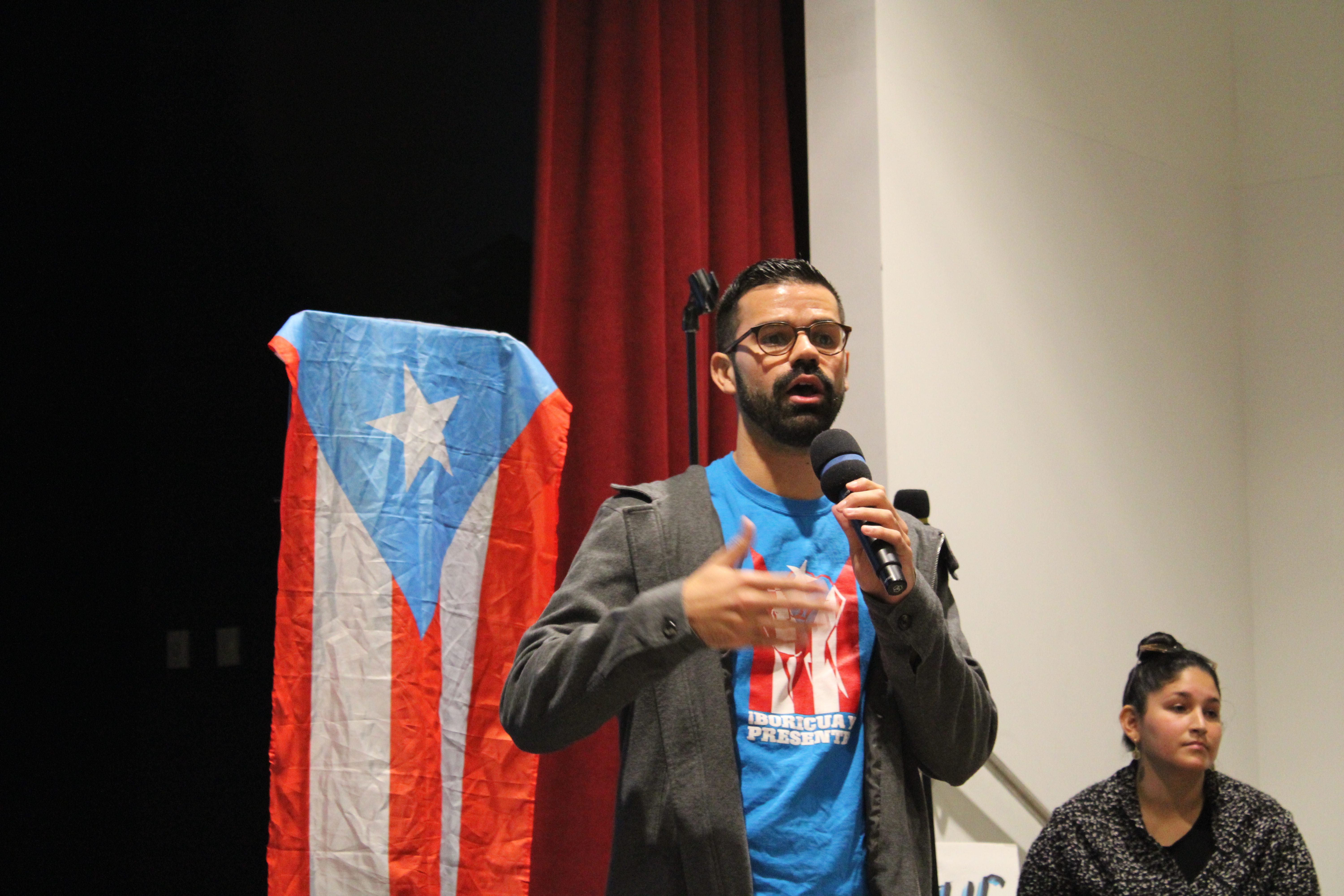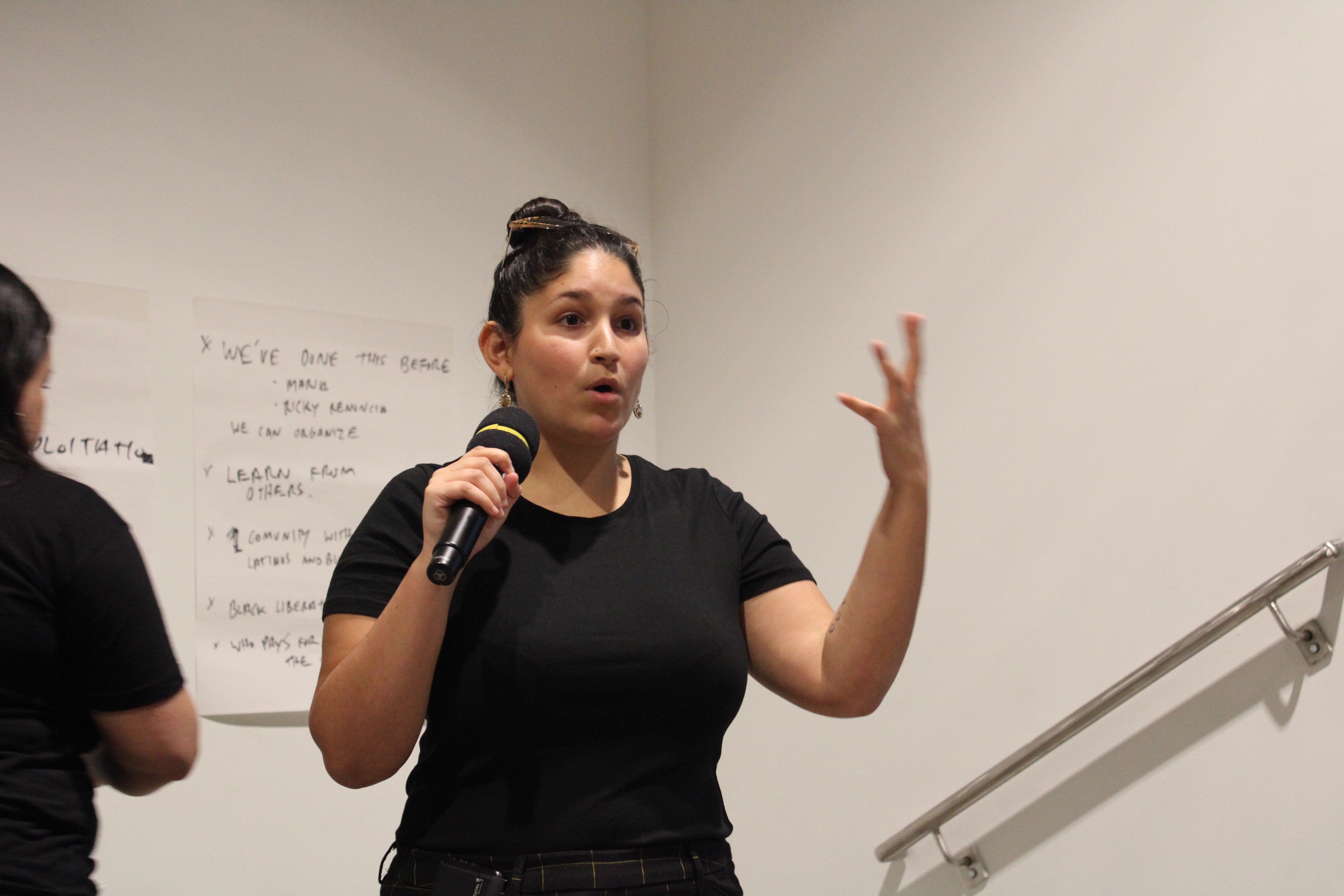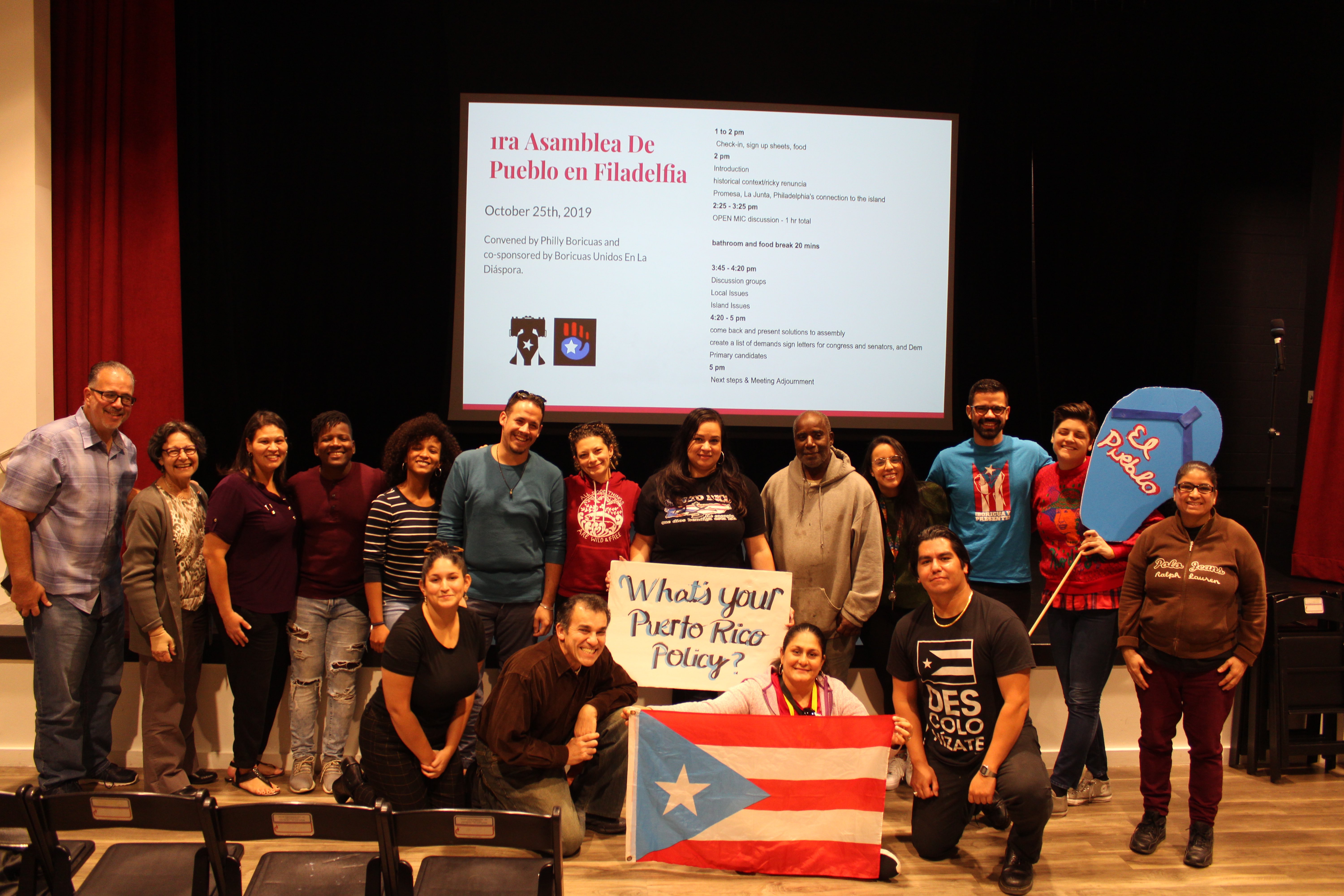
Philly Boricuas hosts people’s assembly on Puerto Rico, Philadelphia
Born out of the #RickyRenuncia protests of this summer, the group is seeking to further discussion and action for Puerto Ricans and allies in Philadelphia.
Former Governor of Puerto Rico Ricardo Rosselló might be gone — but a new group formed by local organizers is looking to keep the conversation going about what Puerto Ricans on the island and here in Philly want to see change.
The organizers of Philly Boricuas first met and came together in the heat of the #RickyRenuncia protests this summer.
In July, hundreds of thousands of people in Puerto Rico participated in the largest demonstration in the island’s modern history, and the Puerto Rican diaspora held protests around the world to demand the resignation of Governor Ricardo Rosselló following the publication of nearly 900 pages of a private chat group between Rosselló and his advisers. Messages included misogynistic and homophobic language, and even jokes which mocked the more than 4,000 people who died after Hurricane María hit the island in September 2017.
But though Ricky sí renunció on Aug. 2, questions of Puerto Rico’s future remain, and so too do the challenges facing Puerto Ricans both on the island and in the diaspora.
Adrián Rivera-Reyes, a postdoctoral fellow in cancer research at the University of Pennsylvania who narrowly missed being elected as a City Council At-Large representative in the Democratic primaries in May, said that the formation of Philly Boricuas “came about organically” in the midst of the Rosselló protests.
After exchanging information and a series of meetings at various different North Philly locations, the organizers decided to keep working together and form a grassroots movement.
About 30 people attended their first Asamblea del Pueblo, or People’s Assembly, held on Oct. 26 at Taller Puertorriqueño in North Philadelphia.
Since Rosselló’s resignation, more than 50 people’s assemblies have been held throughout Puerto Rico as spaces for discussion about what comes next.

On the U.S. mainland, there have been at least three assemblies hosted in New York City, which boasts the largest Puerto Rican diasporic community, and some of the Philly Boricuas organizers attended a people’s assembly held in August in Washington, D.C.
Organizer Puchi De Jesus said the goal of Philly Boricuas’ first assembly, in the style of the other people’s assemblies that have taken place in Puerto Rico and in communities in the diaspora, was to “start the conversation and make people feel like they had a space where they can talk.”
“That was really good hearing everybody’s thoughts and opinions and how they feel about things, because it gives us an idea of what we really need to be doing and focusing on,” she added.
The assembly included a presentation on Puerto Rico’s political history, and linked corruption and financial inequality in Puerto Rico with local figures and issues in Philadelphia. The presenters also compared some of the similarities between Philadelphia’s gentrification issues facilitated by federal opportunity zones established by the Trump administration’s Tax Cuts and Jobs Act of 2017, and the tax incentives formed by federal opportunity zones and Puerto Rico’s Act 20 and 22, which allow non-Puerto Ricans to purchase houses and land and subsequently become residents of the island.
As more than 150,000 Puerto Ricans leave Puerto Rico each year, driven to migrate due to lack of access to education, job opportunities, and more, about 1,500 “high net-worth” people have bought a house and received residency on the island, said presenters.
During the open mic period, several attendees offered their own skills in support of the wider movement, and two members of the audience also commented on the need for the African-American communities in Philly to work with the Puerto Rican community, as well as the commonalities in the systemic racism and oppression that they face.
Attendees also included City Councilwoman María Quiñones-Sánchez, who sat in the midst of the audience as organizers presented and attendees took their turns in an open mic session.
Victor Negrón, Jr., and Madeline Negrón, two local Puerto Rican activists who have long been engaged in issues both on and off the island, said it was exciting to see a younger generation taking on the work of organizing the Puerto Rican Philly community and strengthening the connection to those on the island.
RELATED CONTENT

“I love the fact that we have young, intelligent, well-intended folks who...are willing to develop processes that allow for inclusivity, which means differing opinions, and not judging them,” Victor Negrón noted. “I haven’t seen that kind of exciting movement in this community in quite so long. You saw the councilwoman came here to support. She wasn’t in front, she didn’t tell them what to do.”
He said that communication between those on the island and in the diaspora is “critical.” The Negróns are taking up permanent residence in Puerto Rican soon, and plan to keep working with the Boricua community in Philadelphia to address issues on the island — a mission which includes coordinating the on-the-ground implementation of resources from the fundraising campaign which local graffiti artist Christian “TAMEARTZ” Rodríguez has led.
“We’re going to make the same difference we’ve tried to make here, but we need to stay connected. Because the only way to fix Puerto Rico is with the diaspora,” Negrón commented.
Charito Morales, a community activist and nurse who is also an organizer of Philly Boricuas, told the gathering that many issues of lack of access to healthcare and education on the island predate Hurricane Maria, and continue to form an immense challenge to the physical, mental, and economic health of Puerto Ricans.

“People have to travel through three or four municipalities to be able to have access to healthcare,” Morales said. She emphasized the need for members of the diaspora community in Philly to work with those on the island and utilize their access to resources and information.
Organizers said that the date for the next people’s assembly has not yet been decided, but they are currently working on gathering responses for a survey of the Puerto Rican community in Philly. They hope that by compiling people’s responses, they will be able to reflect back to the community an accurate picture of their priorities, concerns, and perspectives.
“We don’t want to come to dictate, rather we want to understand and see what resources we have, what abilities we have, and how we can incorporate more people and then talk about these problems and begin to attack these situations, keeping in mind what it is that most interests and is most important to the community,” Rivera-Reyes said.
De Jesus said that the first event left her feeling “encouraged.”
“This is our first event so I wasn’t expecting insane amounts of people filling up a stadium or anything, but it’s just building the momentum because nobody is doing this work right now to organize the Puerto Rican community. There’s a lot of cultural groups and nonprofits that are focusing on different things, but nobody is doing grassroots organizing, and making sure that the Puerto Rican community is out there demanding respect and demanding dignity, and so I think it’s necessary,” De Jesus said.











LEAVE A COMMENT: